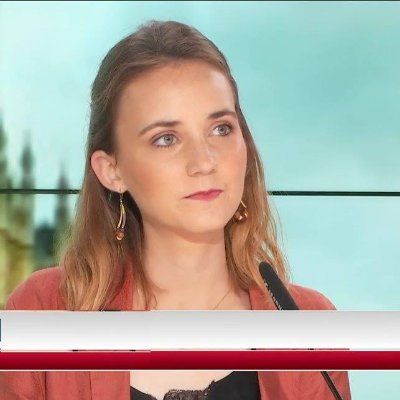
Anna Hubert
Journalist at Contexte
Enquête @ContexteEnergie, écrivait @OuestFrance et @AJWasahi 🇯🇵 | Hier dans les instit' 🇫🇷 et au @collegeofeurope Also here : https://t.co/iAjBueDPUz
Articles
-
1 week ago |
contexte.com | Anna Hubert
Entretien Le 1ᵉʳ juillet, le Danemark prendra les rênes du Conseil de l’UE. Copenhague a l’intention de mettre les bouchées doubles pour parvenir à un accord avec les eurodéputés sur l’interdiction des importations de gaz russe. Dans un entretien avec Contexte, le ministre de l’énergie et du climat, Lars Aagaard, s’est montré « prudent » quant à un paquet « omnibus » de simplification de la législation énergétique.
-
1 week ago |
contexte.com | Anna Hubert
Interview Denmark takes over the EU Council presidency on 1 July and is determined to work at full speed to also strike a deal with MEPs on the proposal to phase out Russian gas imports. In an interview with Contexte, Energy and Climate Minister Lars Aagaard says he is 'cautious’ about simplifying energy law through an omnibus package, and worries about allowing too much flexibility on a 2040 EU climate target.
-
1 week ago |
contexte.com | Anna Hubert |Ciaran Sunderland
La Commission européenne a présenté le 17 juin une proposition de règlement relative à l’interdiction des importations de gaz russe, que l’exécutif européen voit comme un premier pas formel vers la fin des relations énergétiques avec la Russie. Le texte clarifie le calendrier et les conditions de transparence pour parvenir à mettre fin au commerce de gaz. Contexte en explique les principaux éléments.
-
1 week ago |
contexte.com | Ciaran Sunderland |Anna Hubert
The European Commission made a legal proposal on 17 June to ban imports of Russian gas. It contains clear details on timelines and transparency and starts the clock ticking on what Brussels hopes will be an end to Europe’s energy ties with Moscow. Contexte looks at the gory details.
-
1 week ago |
contexte.com | Anna Hubert
La Commission européenne proposera ce mardi 17 juin que, dès le 1ᵉʳ janvier 2026, les entreprises européennes ne puissent plus signer de nouveaux contrats d’importation de gaz russe ni fournir des services à des entités russes dans les terminaux GNL de l’UE, selon plusieurs sources. Les contrats à court terme pourront rester en vigueur jusqu’à la mi-2026, et les accords à long terme jusqu’au 1ᵉʳ janvier 2028. La Hongrie et la Slovaquie entendent s’opposer fermement à ces mesures.
Try JournoFinder For Free
Search and contact over 1M+ journalist profiles, browse 100M+ articles, and unlock powerful PR tools.
Start Your 7-Day Free Trial →X (formerly Twitter)
- Followers
- 11K
- Tweets
- 4K
- DMs Open
- Yes

RT @ftenergy: Rolls-Royce group wins government backing to build UK’s first small modular nuclear reactor https://t.co/Dpp5Pk2rIq

May Gazprom be quietly rejoicing over the situation? "Gas inventories contained in Europe's underground gas storage facilities amounted to 48.6 billion cubic meters as of May 31. This figure is 1.5 times (21.8 billion cubic meters) less than on the same day in 2024"

‘A contract has been signed [with Korean's KHNP] for the delivery of two units for the Dukovany II nuclear power plant,’ Czech Prime Minister Fiala just told the press.

Nuclear: The CZ Supreme Administrative Court (CASS) has lifted the ban on #Dukovany signing the contract. The French bid was disadvantageous; they would never have won the contract, the ruling states. Official statement : https://t.co/nxHIm0sUnV